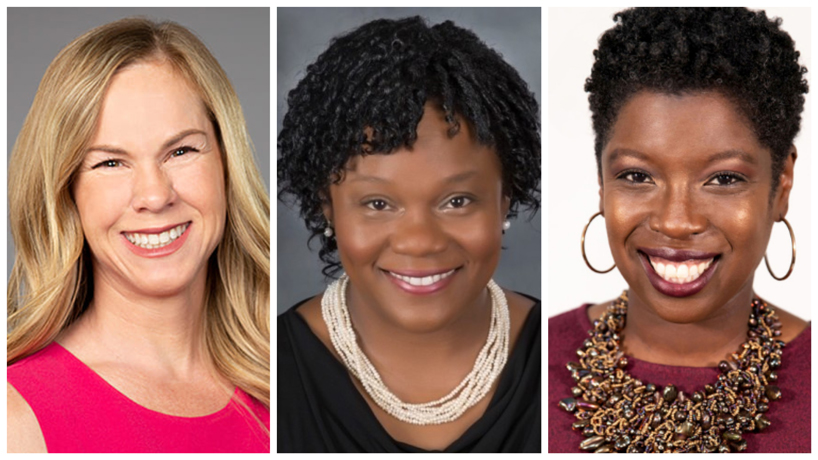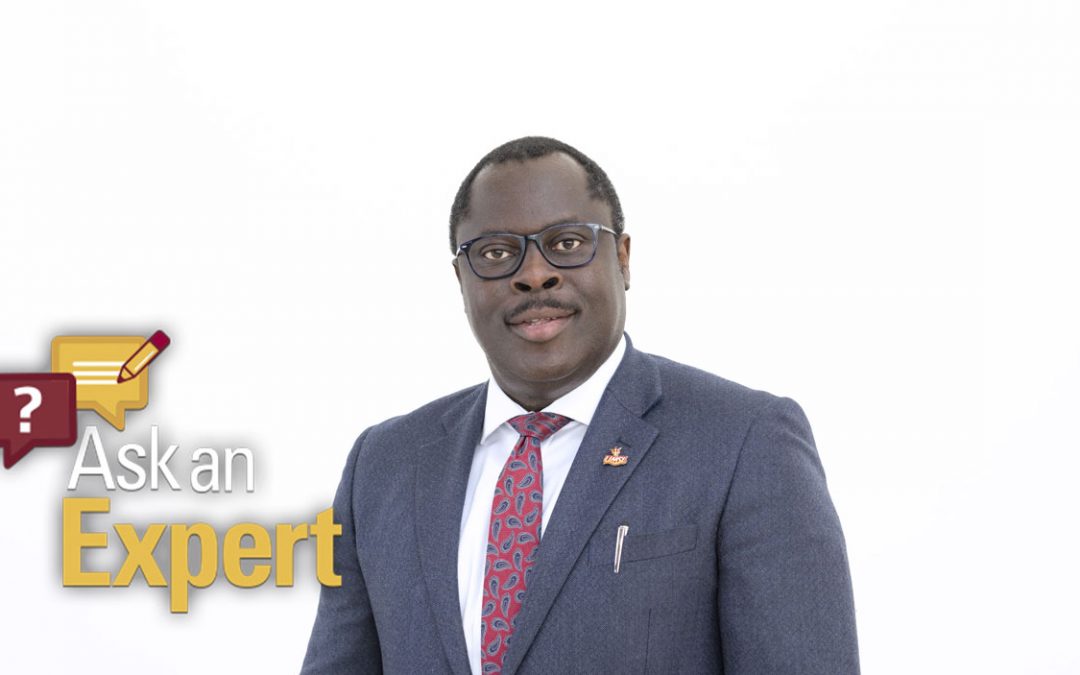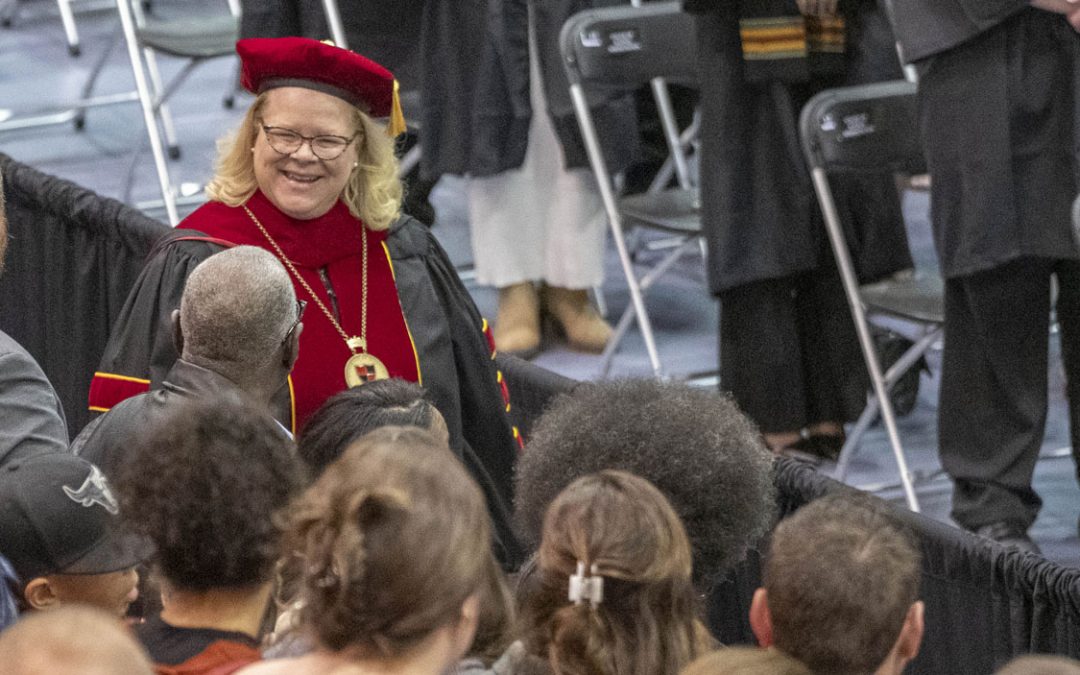
Panelists (from left) Ashley Daftary, Amy Hunter and Riisa Rawlins-Easley discussed equity in health care, critical race theory and opportunities for change during the digital event.
Last week, Sharon Johnson, dean of the School of Social Work at the University of Missouri–St. Louis, welcomed an enthusiastic audience to the sixth annual Critical Issues Symposium.
“Each March, we celebrate the profession of social work by bringing more attention to the critical efforts of individuals who work in various settings to help others reach their full potential,” Johnson said.
More than 70 faculty members, social work professionals and St. Louis area residents tuned into the digital event to listen to a panel discussion on advancing justice through equitable outcomes. There was also a Q&A session following the presentation.
Johnson said the event aimed to bring attention to necessary conversations about equity in health care, critical race theory and opportunities for change.
The panel featured Ashley Daftary, UMSL social work alumna and assistant professor and BSW program director at the University of Nevada, Reno; Amy Hunter, UMSL English alumna and vice president of diversity, equity and inclusion at Caleres; and Riisa Rawlins-Easley, chief operations and strategy officer at the St. Louis Regional Health Commission.
Over the course of her career, Rawlins-Easley has spent much time and energy working toward equity in health care. She noted that there have historically been gross disparities in access and quality of the care in the United States and pointed to a 2003 study conducted by the Institute of Medicine.
The organization’s findings showed that racial and ethnic disparities in health care exist, and they do so in “the context of broader historic and contemporary social and economic inequality and evidence of persistent racial and ethnic discrimination in many sectors of American life.”
“It’s not just the Tuskegee experiment because folks are very familiar with that,” Rawlins-Easley said. “It’s talking to people right now about their experience, for example, within childbirth. We see the outcomes of Black moms and babies and that they’re dying at disproportionately high rates in comparison to other parts of the population. Even when you factor in social, economic and education status, the disparity is still immense.”
Rawlins-Easley urged the crowd to view these disparities as injustices and said it’s imperative to understand how they’ve been embedded and reinforced in the health care system.
To make change moving forward, she advocated pursuing policies rooted in “targeted universalism,” or setting universal goals that are pursued with targeted processes. She also called for open communication and collaboration among regional institutions and “radical listening,” which reframes lived experience as valuable expertise.
“Can we be more robust in our understanding of how qualitative data helps to inform the history and the choices that we make and thinking about creative solutioning for the intractable issue of health care or any injustice that we’re seeing?” Rawlins-Easley said.
Hunter also touched on the need for radical solutions in health care, recounting her experience as manager of diversity and inclusion at the St. Louis Children’s Hospital.
She cited author Isabel Wilkerson’s book “Caste: The Origins of Our Discontents” and explained that disparities in health care are indicative of Wilkerson’s conception of the modern American caste system – a structure where the fixed identity of race in the country is beyond the education and socioeconomic status of individuals.
For example, Black college graduates still face worse health outcomes despite more education typically leading to better health.
“To say that there’s something that you can do to negate racism or to skirt around racism would be a misnomer,” Hunter said. “So noticing each one of our roles and the ways that we play into this system is vitally important. But also noticing how we got here is really important so that we notice how we’re going to get to where we want to go next.”
Hunter then described several measures that were effective at the Children’s Hospital. They included truth and reconciliation visits, where the president of the hospital met with Black residents to listen and apologize; a Witnessing Whiteness workshop for nurses, which is a way for people to consider their own whiteness and understand racism without people of color being utilized as educators; a program to provide free Pack ‘N Plays; an employee book club; and a community film series.
Daftary highlighted how critical race theory, which is rooted in critical legal scholars’ investigation of how racial progress stalled or was rolled back after the Civil Rights Movement, aided her as a social worker and helped her recognize the ways that race and racism impacted her own life and the individuals, families and communities with whom she worked.
She also addressed its frequent misrepresentation by pundits and politicians who have introduced anti-CRT bills in many states.
“In reality, critical race theory is not taught in K through 12 education, and it’s not a tool to shame or blame anybody,” Daftary said. “What CRT actually does is it helps us to have more honest conversations about the ways that power, race and racism have impacted and continue to impact our lives.”
The panelists expressed the importance of those lessons in the fight for equity.
“This is kind of that moment where you cannot be a little pregnant, either are or you aren’t,” Hunter said. “You’re either working against oppression, or you are allowing it to continue in your name.”














